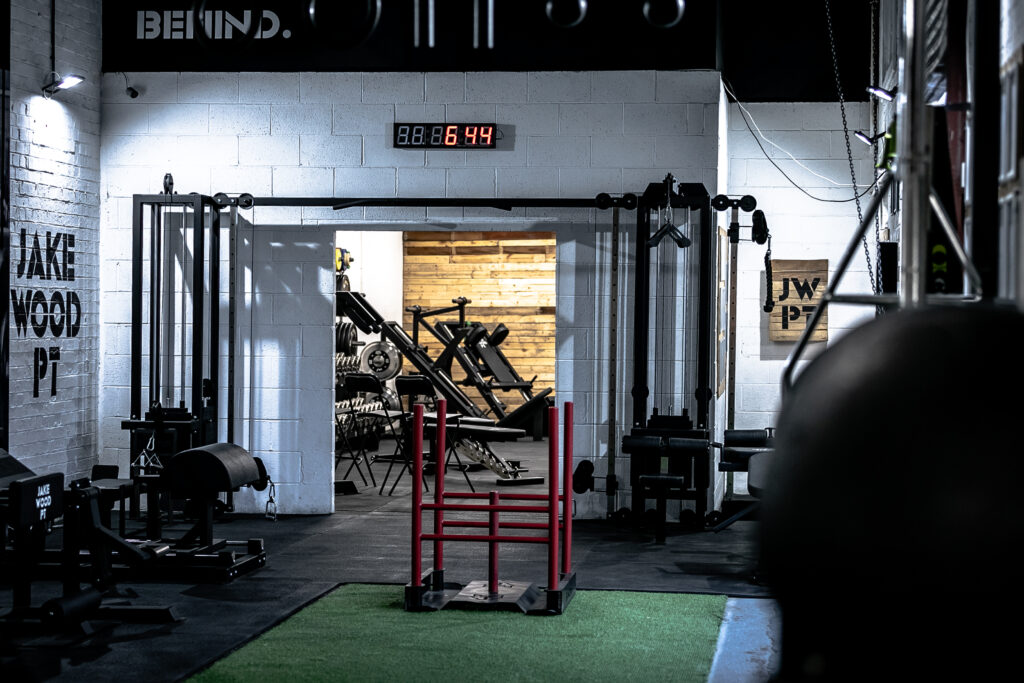Whenever discussions around supplements take place, it’s critical to really understand the product you are using. We all know that social media and websites are littered with thousands of products, all claiming a variety of benefits, the vast majority of which are complete BS. It might not be the “sexy sell” but the scientific evidence behind a supplement is the thing matters! Unlike many supplements, creatine has an excellent evidence base for its positive effects on a variety of sports performance and overall health… KEEP READING!
Creatine: What is it and why do we need it?
Creatine is a natural compound that is produced in the body from amino acids and can be found in foods like meat and some fish. Creatine is mostly found in muscle as “free” creatine or phosphocreatine (PCr), where it plays can essential role in powering exercise and movement (1). This blog will be focusing on supplementation, rather than the biochemistry, so in short PCr is responsible for quickly restoring levels of ATP (energy) in the muscle, ATP is broken down when muscles contract during exercise or other activity, PCr provides a quick pool of energy to allow rapid restoration of ATP, and therefore fuel for high intensity exercise. To prevent any confusion with the scientific terms, from here on in I’m going to refer to “creatine” as just that.
Creatine: What are the benefits of this?
When combined with resistance training, creatine supplementation has been repeatedly shown to support increased muscle mass and strength, potentially due to an increased capacity during training due to energy availability. Whilst the specific mechanism behind these benefits is unclear, the rationale that increased creatine stores support increased energy availability, and therefore increased training output, is widely accepted. In JWPT terms, creatine helps you push for that “one more rep”. Creatine also improves sporting performance in short duration activities such as sprints and powerlifting, and intermittent sports such as Football and basketball, whereby repeated high intensity movements are key to success. (1, 2, 3). Creatine has been shown to enhance recovery in athletic populations, with the International Society of Sports Nutrition stating, “there is strong evidence that creatine supplementation can help athletes enhance glycogen loading; experience less inflammation and/or muscle enzyme efflux following intense exercise; and tolerate high volumes of training and/or overreaching to a greater degree thereby promoting recovery” (2).
In addition to training and performance enhancements, there is a growing body of evidence to support benefits of creatine supplementations for general health and wellbeing. Creatine supplementation has been demonstrated to lower cholesterol and triglyceride levels (4, 5), enhance glycaemic control (6, 7, 8), minimise bone loss (9) and improve cognitive function (10, 11, 12, 13). It is of course worth mentioning that creatine shouldn’t be considered a “silver bullet”, as always when we talk about supplements, they should do exactly that, supplement the positive dietary behaviours, not replacement them. That said the overwhelming benefits of creatine make this supplement a popular choice for many, including myself, and I’d certainly encourage you to consider adding it to your daily routine.
When to take creatine and how much do I need?
Stores of Creatine within the body exist in small amounts, with our normal diets containing around 1-2g per day, meaning muscle creatine store are about 60-80% full (2) therefore supplementation is important. A large variety of supplementation protocols have been examined, with the most effective and widely accepted protocol being to consume 5g of creatine, four times per day for 5-7 days (loading phase), followed by 3-5g once per day (maintenance phase). Taking creatine with carbohydrate and/or protein has been reported to promote greater retention (14), so it’s worth considering taking with food (personally I add my creatine to my post-workout protein shake). Time of day is not considered too important for creatine supplementation, although some evidence does demonstrate a potential reduce absorption rate when consumed with caffeine, so I’d avoid consuming with your first coffee of the day (evidence around caffeine remains unclear).
NOTE: YOUR SUPPLEMENT SHOULD BE CREATINE MONOHYDRATE. CHECK THE LABEL BEFORE YOU PURCHASE.
Is this a safe supplement to use?
Creatine is an incredibly well researched compound, widely used by many individuals across the globe and considered safe to consume. Scientific evidence demonstrates the potential for weight gain of around 2-7lb depending on the individual (15), but this is due to retention of water in the muscles, not body fat store! As with all supplements, if you have specific health conditions or you are pregnant, you should consult a medical professional to discuss prior to consuming.
Summary
- Creatine is a widely researched supplement, showing benefits for increased muscle mass, strength and a variety of sporting performance.
- Evidence suggests benefits for health and wellbeing including lower cholesterol, enhance glycaemic control, minimise bone loss and improved cognitive function.
- To start supplementation, 5g of a creatine monohydrate supplement should be consumed four times per day for 5-7 days, followed by 3-5g once per day.
- Creatine is considered safe and effective for most in the general population, individuals with health conditions should always consult a medical professional prior to consumption.
- Butts J, Jacobs B, Silvis M. Creatine Use in Sports. Sports Health: A Multidisciplinary Approach. 10(1):31-4, 2018
- Kreider RB, Kalman DS, Antonio J, Ziegenfuss TN, Wildman R, Collins R, Candow DG, Kleiner SM, Almada AL, Lopez HL. International Society of Sports Nutrition position stand: safety and efficacy of creatine supplementation in exercise, sport, and medicine. J Int Soc Sports Nutr. 14:18, 2017
- Ramírez-Campillo R, González-Jurado JA, Martínez C, Nakamura FY, Peñailillo L, Meylan CMP, Caniuqueo A, Cañas-Jamet R, Moran J, Alonso-Martínez AM, Izquierdo M. Effects of plyometric training and creatine supplementation on maximal-intensity exercise and endurance in female soccer players. J Sci Med Sport. 19(8):682-7, 2016
- Kreider RB, et al. Effects of creatine supplementation on body composition, strength, and sprint performance. Med Sci Sports Exerc. 1998;30(1):73–82. doi: 10.1097/00005768-199801000-00011.
- Earnest CP, Almada AL, Mitchell TL. High-performance capillary electrophoresis-pure creatine monohydrate reduces blood lipids in men and women. Clin Sci (Lond) 1996;91(1):113–118. doi: 10.1042/cs0910113.
- Gualano B, et al. Creatine in type 2 diabetes: a randomized, double-blind, placebo-controlled trial. Med Sci Sports Exerc. 2011;43(5):770–778. doi: 10.1249/MSS.0b013e3181fcee7d.
- Op’t Eijnde B, et al. Creatine supplementation increases soleus muscle creatine content and lowers the insulinogenic index in an animal model of inherited type 2 diabetes. Int J Mol Med. 2006;17(6):1077–1084.
- Alves CR, et al. Creatine-induced glucose uptake in type 2 diabetes: a role for AMPK-alpha? Amino Acids. 2012;43(4):1803–1807. doi: 10.1007/s00726-012-1246-6
- Candow DG, et al. Low-dose creatine combined with protein during resistance training in older men. Med Sci Sports Exerc. 2008;40(9):1645–1652. doi: 10.1249/MSS.0b013e318176b310.
- Rae C, et al. Oral creatine monohydrate supplementation improves brain performance: a double-blind, placebo-controlled, cross-over trial. Proc Biol Sci. 2003;270(1529):2147–2150. doi: 10.1098/rspb.2003.2492.
- McMorris T, et al. Creatine supplementation, sleep deprivation, cortisol, melatonin and behavior. Physiol Behav. 2007;90(1):21–28. doi: 10.1016/j.physbeh.2006.08.024.
- McMorris T, et al. Effect of creatine supplementation and sleep deprivation, with mild exercise, on cognitive and psychomotor performance, mood state, and plasma concentrations of catecholamines and cortisol. Psychopharmacology (Berl) 2006;185(1):93–103. doi: 10.1007/s00213-005-0269-z.
- Ling J, Kritikos M, Tiplady B. Cognitive effects of creatine ethyl ester supplementation. Behav Pharmacol. 2009;20(8):673–679. doi: 10.1097/FBP.0b013e3283323c2a
- Green AL, et al. Carbohydrate ingestion augments skeletal muscle creatine accumulation during creatine supplementation in humans. Am J Physiol. 1996;271(5 Pt 1):E821–E826
- Rodriguez NR, et al. Position of the American Dietetic Association, dietitians of Canada, and the American college of sports medicine: nutrition and athletic performance. J Am Diet Assoc. 2009;109(3):509–527. doi: 10.1016/j.jada.2009.01.005







